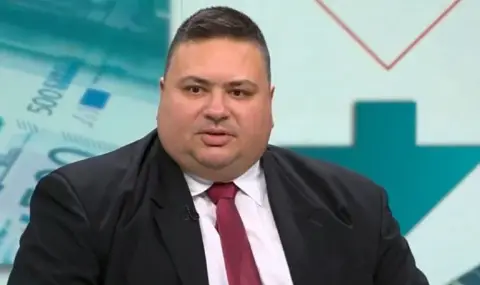2025 draft budget with unprecedented expenditures – BGN 98 billion and an unbelievable increase in revenues - by as much as BGN 20 billion (27%) to a total of BGN 92 billion, the Ministry of Finance proposes. The logic is simple – if the expenses, which rest on secure commitments, are calculated to increase by 20 billion, then in order to keep the budget deficit at only six billion BGN, as it is this year, the state has sought an increase in revenues also by 20 billion BGN.
To what extent the revenue forecast is realistic or wishful thinking can be judged by the fact that in 2023, compared to 2022, budget receipts will grow by only 2.3 billion, and for this year compared to the last year, they are expected to grow by 5.2 billion leva. And suddenly, next year, without changing the rate of any basic tax, the state claims to collect 20 billion more in revenue, which is four times the growth for this year over last year, nine times the growth of the year before and an overall increase of 27% year-on-year, which is not remembered since the best economic years before the global financial crisis.
Where will the money come from
The Ministry of Finance claims that it will collect five billion leva more from VAT, which is 27% compared to this year. However, behind it are only removals of the preferential rates, and the main one remains 20%. And this is expected with a forecast of inflation shrinking to two percent next year and an acceleration of economic growth from 2.2% this year to 2.8%, but still below 3%.
Revenues from excise taxes are expected to grow by as much as 25% – from BGN 6.8 to BGN 8.5 billion. Such an increase is also historically unprecedented. Which is more important. When for the last time the government tried to solve the problem of lack of money by increasing the excise tax on cigarettes and alcohol, the first cabinet of GERB, led by the wisdom of Simeon Dyankov, allowed unprecedented smuggling and in the end, in 2010, excise tax was paid on 45% fewer cigarettes than in 2009. The two indirect taxes are a major source of revenue growth, but to the extent that they depend on the development of the economy, the confidence of households to spend and the rising cost of living, the projections look much more like wishful thinking than realistic assumption.
The most logic seems to be in the income from the “profit” tax. Things are clear there – an additional 800 million from taxation of excess profits in the banking sector and another 900 million is expected from the tax amnesty for correctly declared liabilities, the payment of which is simply delayed. Then again, if firms are able to swallow 10% annual interest as a penalty for their arrears, what source of confidence does the Cabinet see on which to base its forecasts.
The state projected $1.9 billion more in personal income tax revenue, which is double the year-over-year and year-over-year increases. Here again an effect of the tax amnesty is expected, but let's see.
Costs
No surprises are the costs. Just as in that children's film, the heroine of Tsvetana Maneva wrote sixes to the whole class because the principal asked her to write sixes to one particular child, so the Ministry of Finance decided to show itself crazier than the politicians in the Russian roulette and while they wanted an increase on the salaries of policemen, soldiers, magistrates and teachers, the finance offered 10% for everyone else.
However, the biggest mystery remains the state investments. First, this year's volume appears to be 20% below the forecast – only BGN 6.8 billion, which explains why the deficit will still be below three percent of GDP.
For next year, however, they are expected to double to 14 billion, despite all the assurances of the government that it will actually drive it more modestly.
How will the economy fare
The forecast on which the budget itself is based includes a nominal gross domestic product of BGN 215 billion. Only 4.1% unemployment, which is lower than this year, although so far we only hear news of business closings.
If there is one main argument that this budget is too optimistic, it is the betting of additional revenues from the most sensitive areas of public finances - excise duties, which are always linked to smuggling, when the pressure on them increases and the tax amnesty, which will undoubtedly be an experiment and no one knows how it will end.
The good news, as much as the investment cuts may be pleasing, is that there will be room for capital expenditure cuts next year. But the worst news is that this budget is like a plasticine barbarian. It can be pushed from everywhere and no one knows what its implementation will look like at the end of next year. The last time the finance ministry submitted such an unconvincing budget was in 2009 for 2010, and it was clear as early as January that it would have to be updated. Congratulations, history repeating itself. But if Dyankov created a farce then, how can we explain the situation today?
